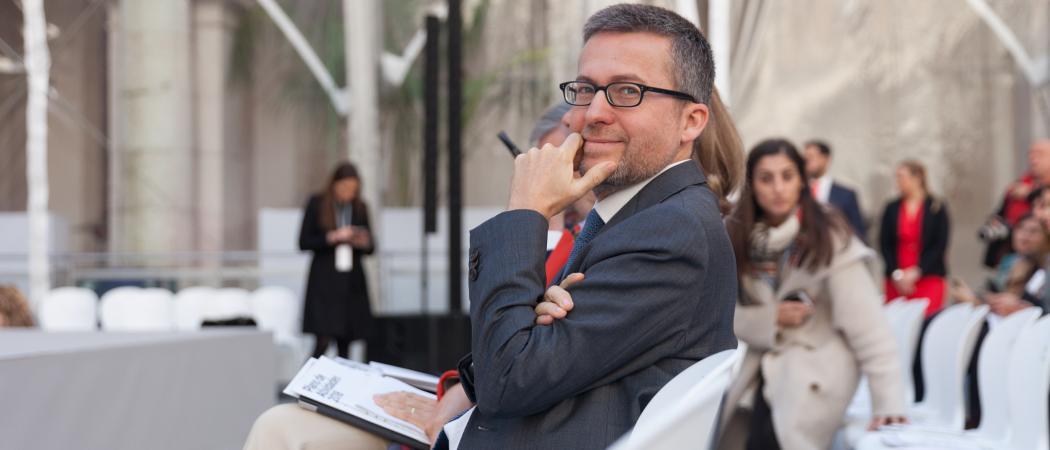EU Research Commissioner is out to convince member states that they should protect a €100 billion investment for research

The EU’s research commissioner on Wednesday pressed for bold commitments from member states on research and innovation spending, amid signals that countries will dig their heels in over a planned budget increase.
Taking advantage of the prevailing good mood around research in Brussels, Carlos Moedas presented a laundry list of actions that make up a “renewed agenda for research and innovation”, which he hopes will help sway EU leaders meeting in Sofia Wednesday to hash out how the EU should disperse money from its new seven-year budget.
The May 2 spending proposal from the European Commission made Moedas one of the biggest budget winners, with almost €100 billion earmarked for the next research programme, Horizon Europe. The trick, now, is to hold onto that figure in the face of arguments from some richer member states, such as Austria and the Netherlands, that the bloc’s budget should absorb the loss of the UK by shrinking and becoming more efficient.
Getting countries into his corner, Moedas will know, is a prerequisite for realising his main policy goals, which have been years in preparation.
Included in the list of initiatives presented to reporters were many recognisable ideas: the European Innovation Council, already in pilot, and the well-trailed plans to stage research ‘moonshots’ under the next research programme (to be called “missions”). There was also the already-announced plan to buff up venture capital funds and a reheating of a proposal to liberalise insolvency law across Europe.
The only genuinely new idea, and seemingly a suggestion from Norway, was to create an ‘open science label’ for universities to reward efforts to publish open access science.
The set of actions together represented a bold agenda, the commissioner argued, and, expensive as some of them would be, they’d pay off in the form of better and more jobs.
Moedas hailed the “biggest increase in the EU research budget ever”. “No doubt that research is at the very top of the agenda now,” he added.
But it’s in the main money-getting countries that the commissioner’s assertion will be tested. He’s likely to run into politics. A boost to his portfolio could wipe out resources for longstanding budget staples; innovation is a glamorous topic for politicians to talk about but it tends to take a back seat to more pressing political issues such as subsidies for farmers and money to build roads and fix wobbly bridges in poorer, rural regions (the Commission’s budget proposes to slice both spending lines – Central and Eastern European countries will try to walk these cuts back).
Moedas v Macron
The problem right now, Moedas said, is that Europe is not creating enough game-changing innovation. Companies here invest less than their competitors in China, the US, Japan, and South Korea. Money is tighter. In 2016, venture capitalists invested about €6.5 billion in the EU compared to nearly €40 billion in the US. Public investment, meanwhile, continues to fall short of the 3 per cent GDP target; research performance is still uneven among EU regions, with investment and research heavily concentrated in Western Europe.
Moedas has long pitched the EIC as one answer to the failure to produce tech giants on a par with the likes of Google or Amazon. But he will have to prove to member states that his vision is not duplicative of Emmanuel Macron’s. The French president last year proposed “a European Darpa” – initially envisaged as an agency controlled by governments, rather than by EU institutions.
“Mr Macron has been trying to develop this idea – [and] this is exactly the problem we are trying to solve,” said Moedas. “I think we are much more effective if we resolve this at Union level. Our proposal is to solve this via a European instrument.
“I hope to be able to convince all leaders that [my] solution is the solution for the European Union,” Moedas said.
The EIC is a result of a “long, long process… the amount of hours you could not imagine,” the commissioner added.





 A unique international forum for public research organisations and companies to connect their external engagement with strategic interests around their R&D system.
A unique international forum for public research organisations and companies to connect their external engagement with strategic interests around their R&D system.